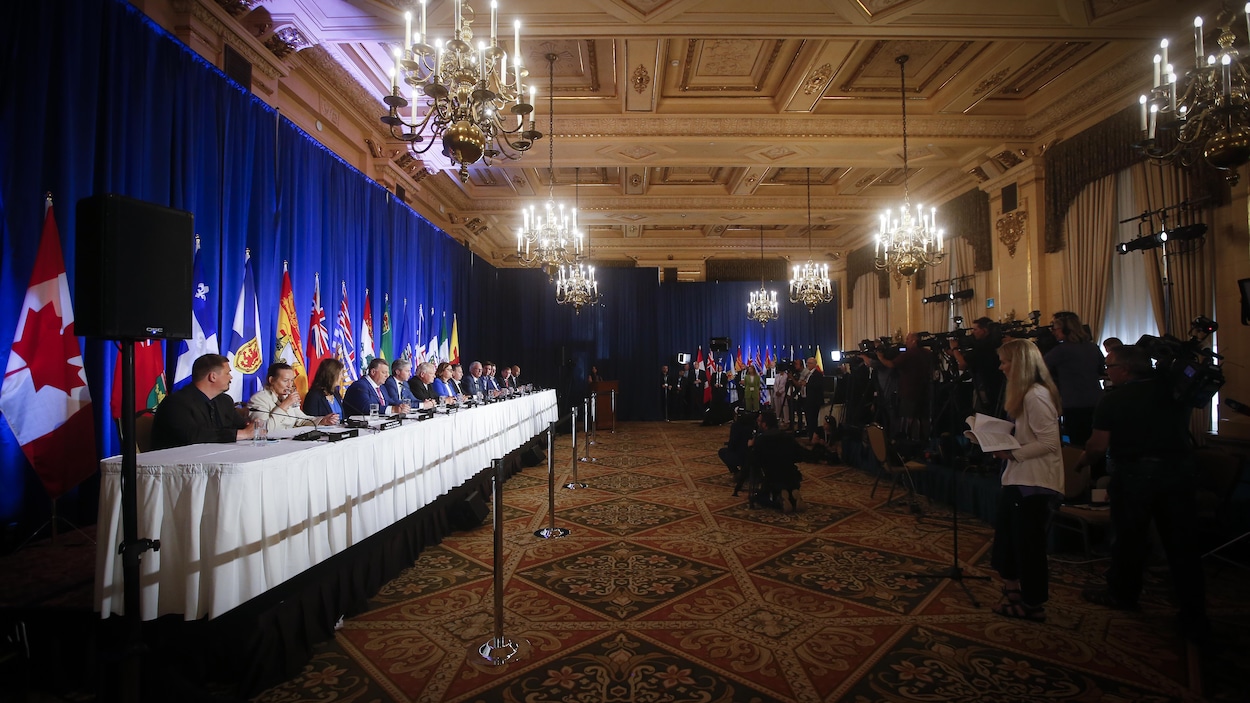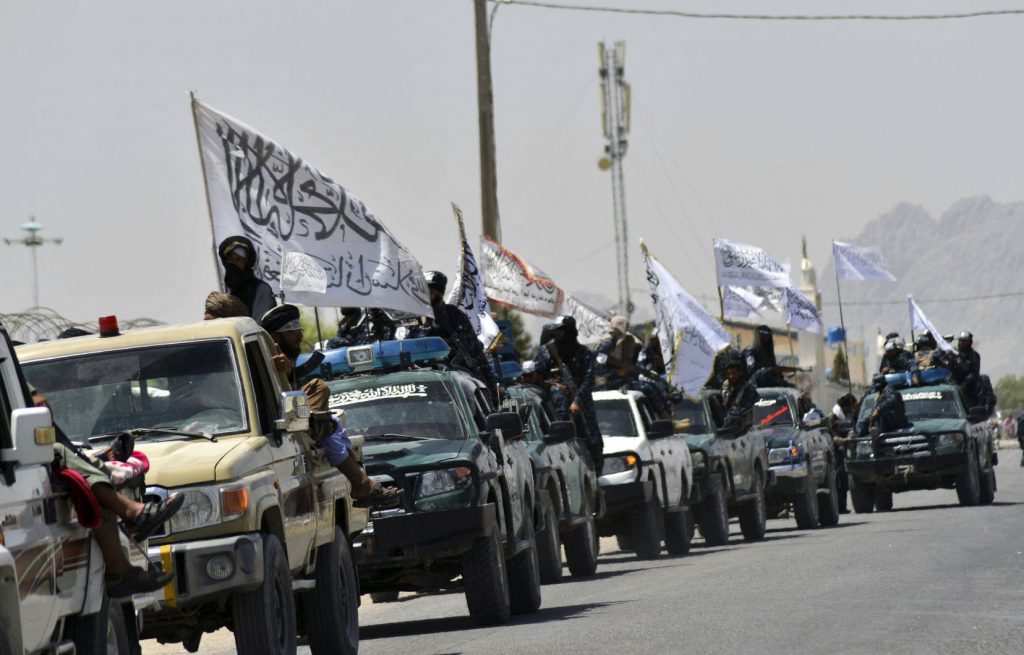After the defeat of American power, the Taliban, which is expected to announce the formation of its first government on Friday, now faces another major challenge: regaining control over the fate of Afghanistan, whose economy is in the process of collapse. Residents are reluctant to go back to the dark years of the past. A risky exercise in a climate of instability that threatens the country’s social peace and the prospects for a new authoritarian regime.
Which country is the country in more than two weeks after the Taliban’s return in force?
With a per capita GDP of $508 in 2020 – valued at more than $43,200 in Canada – Afghanistan’s economic picture has already not been so glorious under the occupation government. The shock of the Americans’ departure, coupled with the unopposed return to the Taliban, only precipitated the deterioration of the economic landscape. Since August 14, the prices of basic foodstuffs, such as flour, rice and oil, as well as the prices of petrol have risen, making daily life and travel more difficult for the majority of Afghans.
Bank closures also limit access to cash, which until then was only available at a handful of teller machines that residents have broken into since the start of the chaos.
The giant American money transfer company Western Union announced, Thursday, the resumption of its activities in Afghanistan to allow Afghan expatriates to send money to their families. In 2020, according to the World Bank, these transfers amounted to $789 million, or 4% of GDP.
The Afghan economy remains fragile due to its dependence on foreign aid, which came to a standstill after the return of the Taliban. This money represented 42% of GDP last year, but above all three-quarters of public spending, which includes salaries for civil servants, teachers, police officers … whose economic survival is threatened by the changing of the guard.
Can the new regime, whose ideology is openly anti-Western, deny itself helping the West?
Engaging in shows of force since the Americans left, the Taliban remain aware that they need access to the global financial system to stay in power, as the country’s economic environment today is different from that of 20 years ago, before the United States. Invade.
The numbers are relentless: According to the former governor of the Central Bank of Afghanistan, Ajmal Ahmadi, the Taliban will now only have access to 0.1% of the 9 billion of the country’s financial reserves that were theoretically in coffers when he took power. The problem is that the US Federal Reserve holds $7 billion, and the rest is with other countries (including Germany) and international financial institutions that blocked access to this money after the fall of Kabul.
Thus, the economic future of Afghanistan will depend on the resumption of economic cooperation with these countries or on establishing new ties with China, Russia or Iran, which could find a political and geostrategic interest in supporting the Taliban.
The new regime could also reconnect to its traditional sources of income that had flourished in the past: extortion, taxation of road travel and the entry of goods into the country, kidnappings, but also the resumption of production and the opium trade. A path that could nonetheless complicate any international recognition of the next government.
“The Taliban realize they need international help to prevent the economy from collapsing, a collapse that could worsen the social climate and make the country ungovernable,” said Fong Siu, chief economist for Asia. quoted Watchman.
What is the position of the country’s Taliban in the future?
Mystery and tensions are likely to permeate the daily lives of Afghans for the coming weeks and months, despite the signs of openness and moderation shown by Kabul’s new masters.
A sign of a difficult regime change, about fifty women on Thursday defied the Taliban by taking to the streets of the western city of Herat to defend their rights. “We are not afraid, we are united”, AFP reported, calling for their right to education, work and security to be respected. Between 1996 and 2001, the Taliban denied them these rights in a framework that combined humiliation and oppression.
The Taliban realize they need international help to prevent the collapse of the economy, a collapse that could worsen the social climate and render the country ungovernable.
And this demonstration took place at a time when the Taliban revealed more than two weeks ago its contradictions on the political future of the country. On the one hand, they claim that they want to establish an inclusive government, and on the other hand, they announce the end of co-education in universities and refuse to give women positions of responsibility.
On Wednesday, the deputy head of the Taliban’s political office in Qatar, Sher Mohammad Abbas Stanikzai, hinted on BBC radio waves that “there may not be” the appointment of women as ministers or in positions of responsibility, but only at lower levels. It is a possibility previously denounced by the member states of the Group of Seven leading industrialized nations, and which Afghanistan will nonetheless need to face its new future.
Watch the video

“Total coffee aficionado. Travel buff. Music ninja. Bacon nerd. Beeraholic.”

![[IMAGES] Someone tries to set himself on fire outside Trump's courthouse](https://m1.quebecormedia.com/emp/emp/Capture_d_cran_2024_04_19_134909afe99a84-cf29-4f06-9dc2-9eb9ce265b46_ORIGINAL.jpg?impolicy=crop-resize&x=0&y=201&w=1074&h=604&width=1200)





More Stories
[IMAGES] Someone tries to set himself on fire outside Trump's courthouse
“Extreme” cruelty to animals: Two children sentenced for killing about twenty animals
Quebec delegation to Gaza: “We are committed to knowing that there is an element of risk”